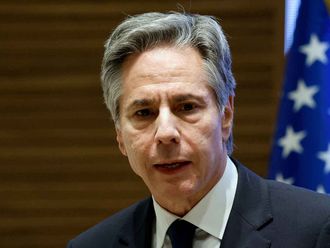Sana’a: A controversial Yemeni cleric has advised the government to begin talks with Al Qaida militants, days after militants posed before cameras slitting 14 soldiers’ throats in the eastern province of Hadramout.
Abdul Majeed Al Zindani said that the killing of “400 soldiers” by Al Houthis in Amran province should get the same condemnation like the murder of their colleagues by Al Qaida in Hadramout.
“We need to open dialogue with everyone, even with those armed groups. The country will not be stable as long as there are armed groups who feel they have been wronged,” he said on Sunday in an interview with the national TV. Al Zindani was designated in 2004 as a global terrorist by the US government for promoting Al Qaida’s ideologies.
The government has not responded to Al Zindani’s suggestion, but the last time the incumbent president, Abd Rabbo Mansour Hadi, extended an olive branch to the militants was in 2012. Hadi stipulated that they should first lay down their weapons, denounce extremism and turn their back to foreign support.
Al Zindani accused what he described as the “foreign factor” of impeding any attempt to establish rapport between government and the militants.
“Those people [Al Qaida] agreed to talk with the government when some scholars contacted them in the past. We must be free from the foreign domination,”
Due to undeclared disputes with the former president, Ali Abdullah Saleh, the cleric has not appeared on the national TV for years.
The cleric criticised the Yemen government for allowing the US drones to carry out strikes in Yemen even if the aim of these missions was to kill fugitive militants. “US drone strikes are killing out of the law. The west has failed to give inclusive definition to terrorism.”
The cleric disputed western accusations that his Iman University has generated many terrorists including the American-born Yemeni cleric, Anwar Al Awlaki, who used to deliver lectures at the university. Al Awlaki was assassinated by a US drone strike in 2011 in Yemen.
“Our curriculum was approved by respected scholars. I should only be asked about this curriculum, not about each person who studies at the university. There could be some students who might have been influenced by some ideologies outside the university.”
He said that 2,200 postgraduate students have graduated from his university since 1993 and they live and teach in the Gulf countries, Europe, China, and Russia and no one has said that they are terrorists.












